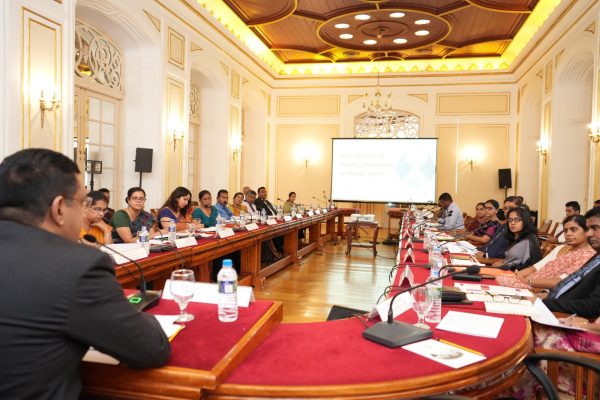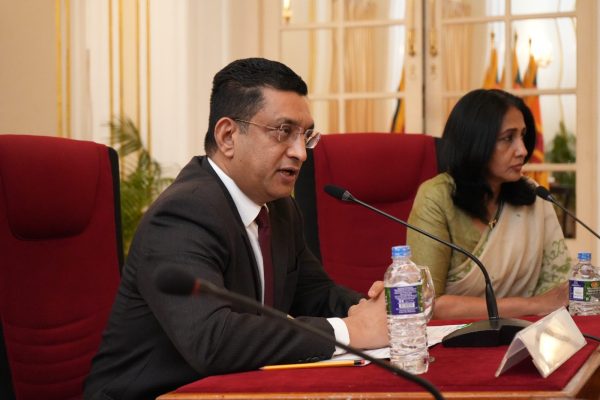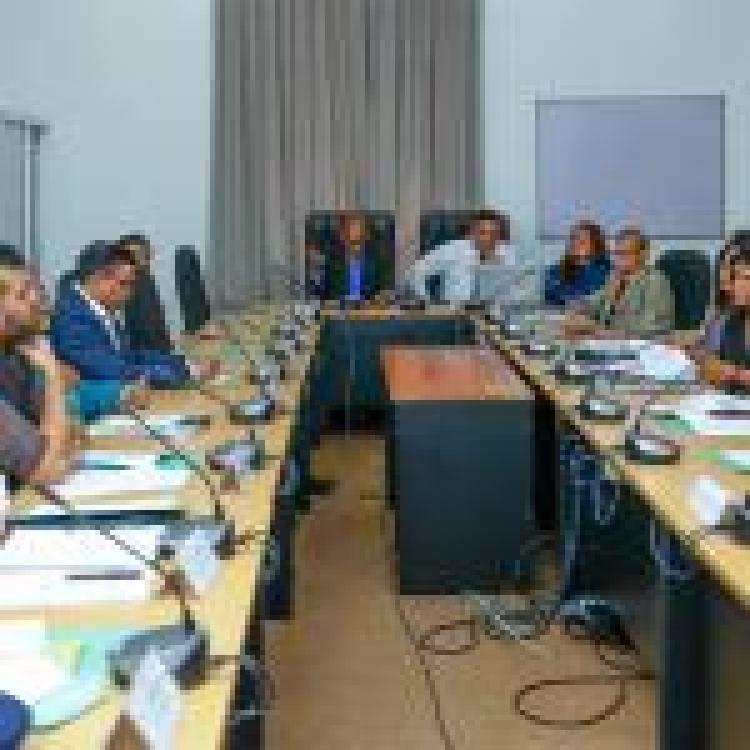![]()
The Deputy Asia Director at Human Rights Watch (HRW) has warned that Sri Lanka is "going in reverse" on issues relating to human rights and social justice.
Meenakshi Ganguly, Deputy Asia Director for HRW, noted that the Wickremesinghe is focused on suppressing dissent and limiting international attention on human rights, through the introduction of repressive laws and continued targeting of Tamil community members.
This comes as Sri Lankan government officials held their inaugural meeting for the Inter-Ministerial Standing Committee on Human Rights, a committee set up to demonstrate Sri Lanka's commitment and obligations to upholding human rights and fostering reconciliation.
Sri Lanka’s Minister of Foreign Affairs Ali Sabry told the inaugural meeting of the Inter-Ministerial Standing Committee on Human Rights that “Sri Lanka will continue to engage constructively with the United Nations and remains committed to pursuing tangible progress on reconciliation and human rights through domestic institutions while preserving its sovereignty.”
The Human Rights Watch in its latest communique says that “Successive Sri Lankan governments have appointed at least 10 commissions since the 1990s to examine human rights violations and war crimes. The new law simply replicates previous failed efforts, ignores the needs of victims, and falls far short of meeting Sri Lanka’s international legal obligations.”
Ganguly warned that Sri Lanka is going in reverse and fast, that instead of “focusing on social justice and rights, the new government, led by President Ranil Wickremesinghe, is focused on suppressing dissent and limiting international attention on human rights.”
The rights body said Wickremasinghe’s government pledged to provide answers to families of the “disappeared”, and to provide reparations for victims of abuses.
“The government’s actions expose the need for continued international attention. Even as it has announced the Commission for Truth, Unity and Reconciliation in Sri Lanka Bill, purportedly to address civil war atrocities, the authorities continue to silence and repress the families of the disappeared.”
Successive Sri Lankan governments have appointed at least 10 commissions since the 1990s to examine human rights violations and war crimes. The new law simply replicates previous failed efforts, ignores the needs of victims, and falls far short of meeting Sri Lanka’s international legal obligations.
Many victims say they have “commission fatigue”, and see no use in providing their testimony again, risking re-traumatisation and possible threats from security forces. HRW says the government should stop arresting Tamil community members for the memorialization of their war dead, and end government actions to appropriate Tamil and Muslim lands, including religious sites, in the North-East.
The Inter-Ministerial Standing Committee (IMSC) on Human Rights was established pursuant to the approval of the Cabinet of Ministers on 11 December 2023, is supposed to serve as a standing national framework to ensure efficient coordination and reporting on Sri Lanka’s voluntary international commitments regarding human rights and reconciliation.
This is the second such meeting in one week that Sri Lanka is having in line with its narrative of committing to reconciliation. Earlier this week, Colombo’s Civil society was invited to participate in Sri Lanka’s Interim Secretariat for Truth and Reconciliation Mechanism (ISTRM), yet another government initiative that has been slammed by Tamil survivors as another move to delay international justice, reportedly met with “stakeholders” and “discussed various aspects of the draft bill for a Commission for Truth, Unity, and Reconciliation (CTUR), which will play a pivotal role in addressing grievances of persons affected by the conflict in the North and East, promote reconciliation and non-recurrence,” according to a release by the President Media Unit.



